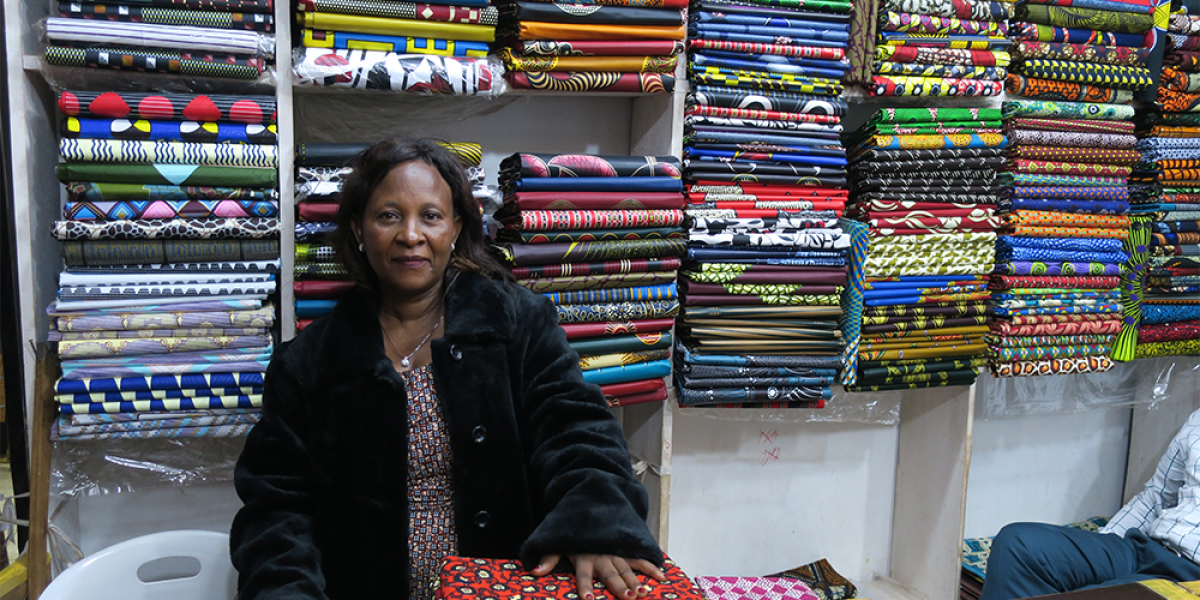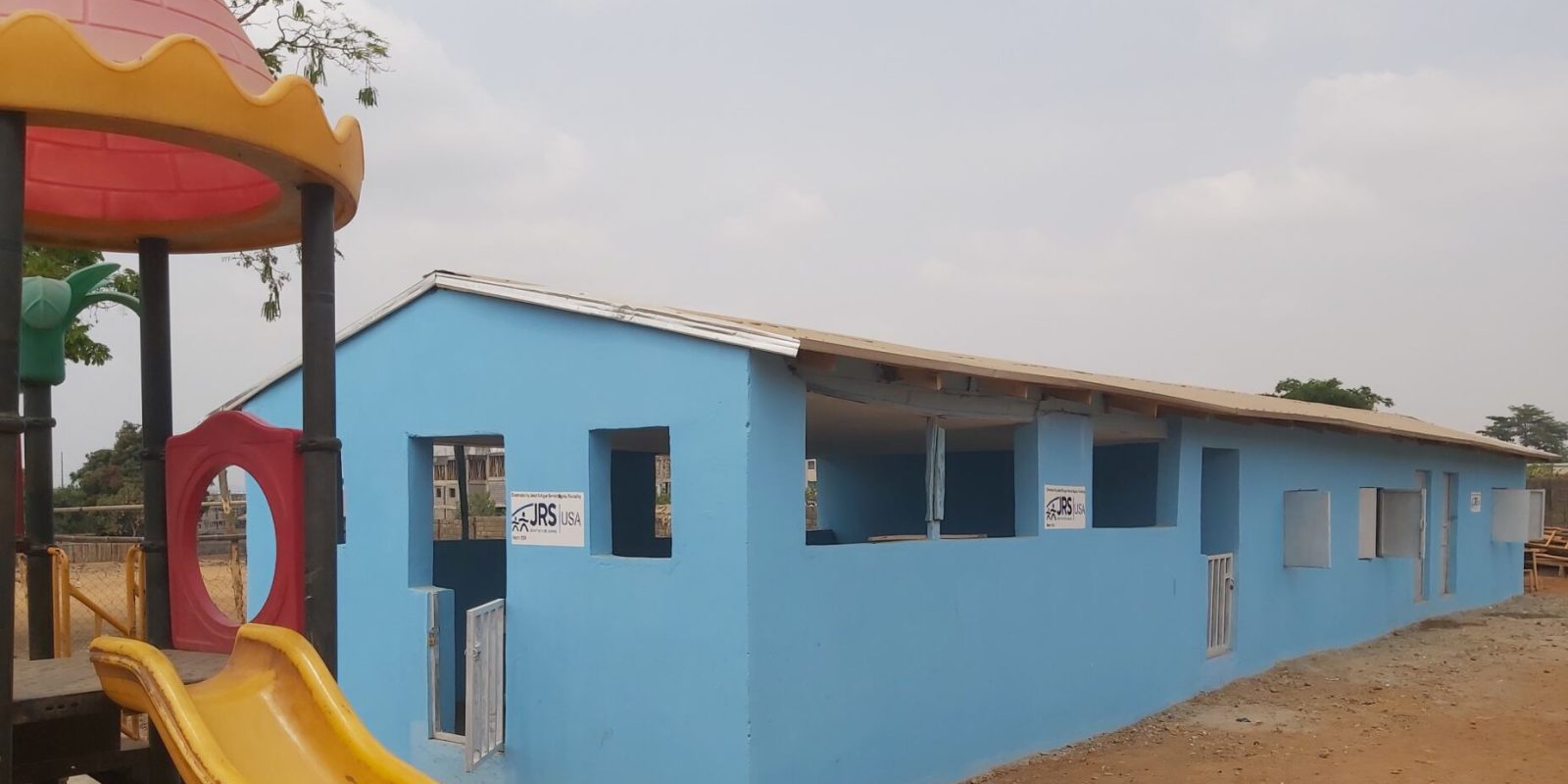Uganda: Refugee Mother in the Textile Industry
10 May 2018|Dickie Fischer, JRS/USA Programs Coordinator

In 2011, Janette, her husband, and eight children fled from the Democratic Republic of Congo to Kampala, Uganda. In fleeing to Uganda, Janette’s family left behind all their assets and properties. Her husband, who was a professor in DRC, struggled to find work in Uganda. After two years, Janette knew that she needed help so that her children could have a better life in Uganda, so she went to the JRS office in Kampala. She asked for support in her pursuit to secure an income to sustain her family.
In response, JRS enrolled Janette in the adult English classes, a 12-month course designed to achieve a level of English proficiency necessary for working in Uganda. Janette then enrolled in JRS’s three-month Arts and Crafts course, one of the many courses JRS Uganda offers through its livelihoods program supported by the U.S. Department of State Bureau of Population, Refugees, and Migration and JRS/USA. Upon completion of the course, beneficiaries like Janette participate in a business development course aimed to equip graduates with basic business knowledge and tools to enhance their employability or successfully run their own businesses.
After the business development course, Janette received a micro-credit from JRS to open her own textile business. “I am grateful to JRS for the business development course, because it taught me how to differentiate between capital and profit, how to invest properly, and how to manage my business finances efficiently. When I started my business, I was renting a tiny space in a worse part of the city. My business is doing well, and now I own my own textile shop downtown.”
Janette is very happy with her textile shop and now can provide for her children. Her business is now a family affair, with her husband and older children helping her in the expansion business. And, she’s also helping other refugee women and mothers make a living by leasing store space to them, and teaching what’s she learned about being a refugee, a mother, and an entrepreneur.



